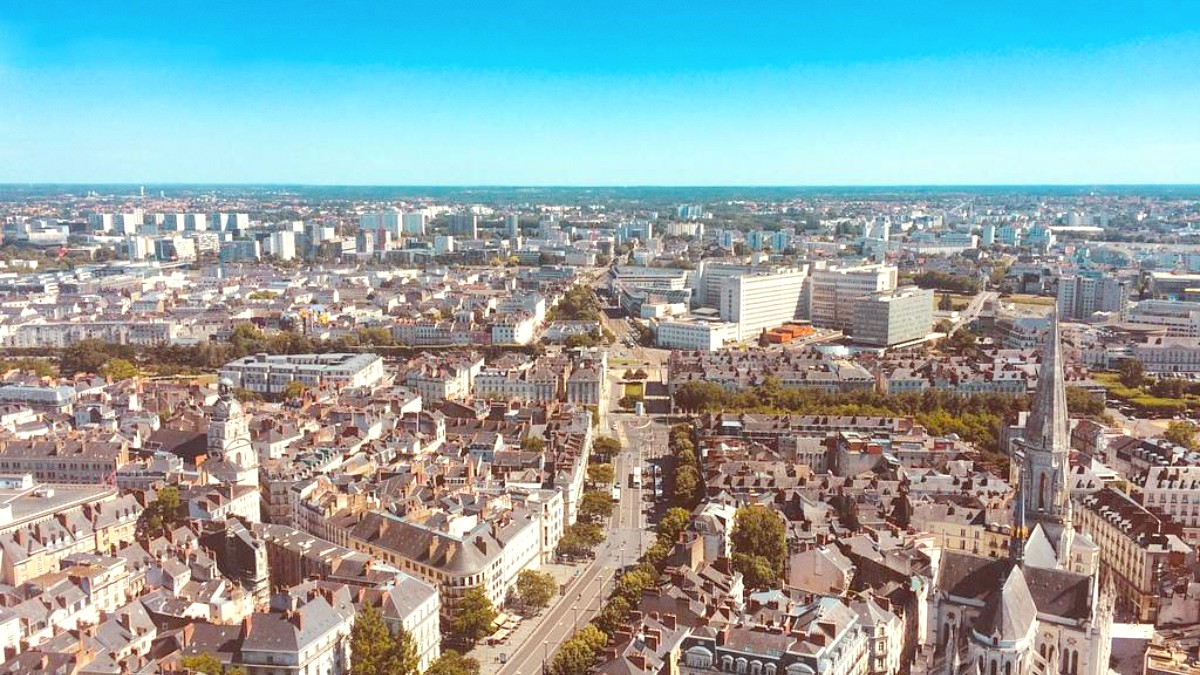
Southwestern France, France
Nantes is near the Loire River, an UNESCO World Heritage site, with protected river ecosystems. Parc Naturel Régional de Brière, a significant wetland, focuses on biodiversity.
France has established recycling programs. Look for separate bins: yellow for plastics/metals/paper, green for glass, and grey/black for non-recyclable waste. Familiarize yourself with local sorting rules.
Tap water in Nantes is safe for drinking. Being mindful of water usage is always recommended. Take shorter showers and turn off taps when not in use. This practice is important during dry spells.
Make environmentally conscious decisions during your travels.
Consider purchasing carbon offsets for your flights to and from Nantes. Many airlines and third-party organizations offer programs that invest in projects reducing greenhouse gas emissions. Terrapass is a carbon offset provider.
When booking, seek hotels with environmental certifications such as "Green Key" or "European Ecolabel." These properties implement practices like energy efficiency and waste reduction. For eco-friendly accommodation, Ecobnb is an option.
Opt for sustainable outdoor gear from retailers like Patagonia. Consider reusable products from companies like Package Free Shop to reduce waste.
Choose tour operators that emphasize local experiences and respect the environment. Inquire about their environmental policies. G Adventures is an ethical tour operator with a focus on responsible travel.
Support attractions and tours that promote conservation and environmental awareness, especially around the Loire River and Brière.
Visit The Rainforest Site StoreAdhere to local waste sorting rules. Look for clear signage on bins for plastics, glass, and general waste.
Learn more at GreaterGoodEven where water is plentiful, mindful consumption is a sustainable practice.
Engage respectfully with Nantes' culture and people to foster positive interactions.
Support local artisans and cultural institutions. When purchasing souvenirs, choose items made by local craftspeople over mass-produced goods. Visit and support museums, historical sites, and cultural centers that work to preserve and promote Nantes' heritage.
Make an effort to learn a few basic French phrases ("Bonjour," "Merci," "S'il vous plaît"). Locals appreciate the effort. Always greet shopkeepers, restaurant staff, and service providers. Be patient and polite; French communication can be direct. Wait your turn in lines.
Always ask for permission before taking photos of individuals, especially children. A simple gesture or "Pardon, je peux prendre une photo?" works well. Be discreet and avoid intrusive photography. Respect requests not to photograph.
When visiting churches or other religious sites, dress modestly with shoulders and knees covered. Maintain a quiet and respectful demeanor inside. Avoid loud conversations. Turn off your phone ringer. Observe any specific rules regarding photography or access during services.
To maintain pleasant interactions, certain topics are best avoided with strangers in France.
Refrain from discussing salaries or personal wealth.
Avoid engaging in highly sensitive political debates.
Avoid comparing France negatively to other nations.
Maintain a moderate voice level in public spaces. Speaking loudly can be considered impolite.
Support the local economy and ensure your visit benefits the Nantes community.
While Nantes is an urban center, focusing on supporting local businesses directs your tourism money within the community. This contributes directly to local prosperity and cultural preservation.
Seek out shops that sell locally made products or items certified as fair trade. This practice helps ensure producers receive fair compensation for their work.
Dine at independent restaurants and cafes rather than large international chains. Shop at local boutiques and specialty stores. Book tours and services with local guides or small, independent tour operators. These choices directly benefit the Nantes economy.
Do not engage in activities that exploit animals (e.g., unethical animal attractions) or local communities. Research before participating in any animal-related tourism. Be cautious of overly aggressive street vendors or beggars. If you wish to donate, consider contributing to recognized local charities.
If you choose to make a charitable contribution, research reputable local non-governmental organizations (NGOs) or charities rather than giving directly to individuals on the street.
Find reputable local NGOs.
Ensure donations reach vulnerable populations.
Support sustainable community programs.
Choose Nantes' excellent public transportation (trams, buses, Navibus, cycling) over taxis or rental cars whenever feasible. This reduces traffic congestion and carbon emissions.
Your choices as a traveler contribute to the sustainability of Nantes as a destination. Thoughtful decisions benefit both the environment and the local community.